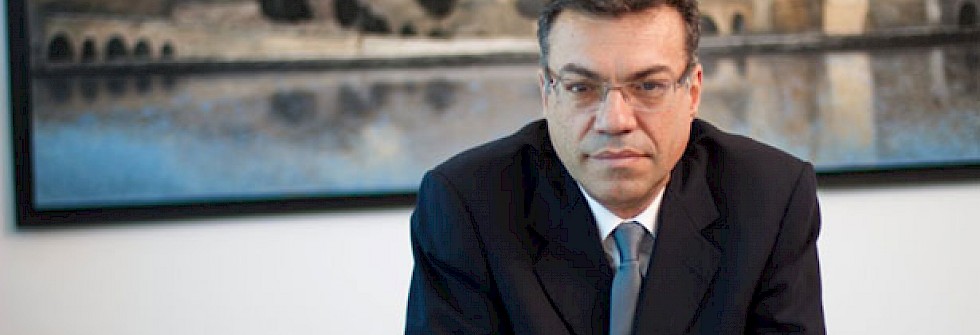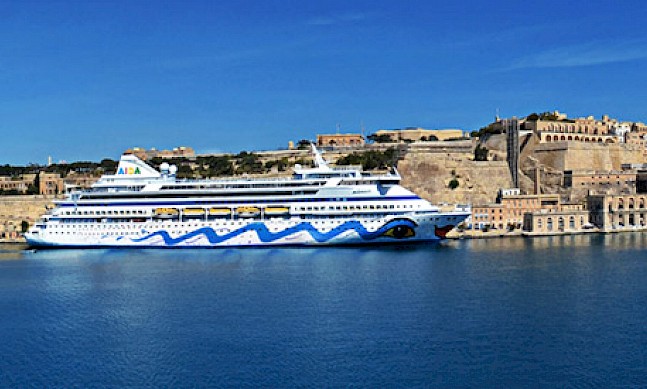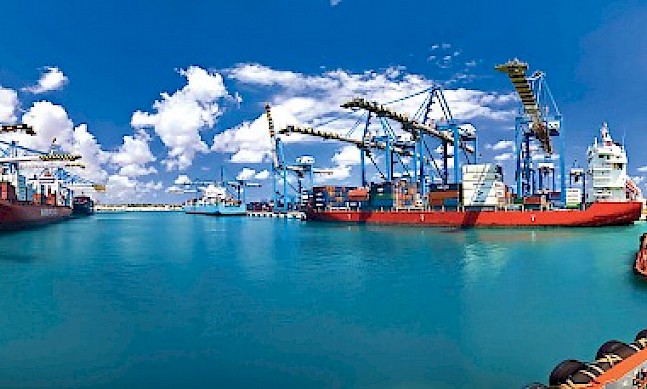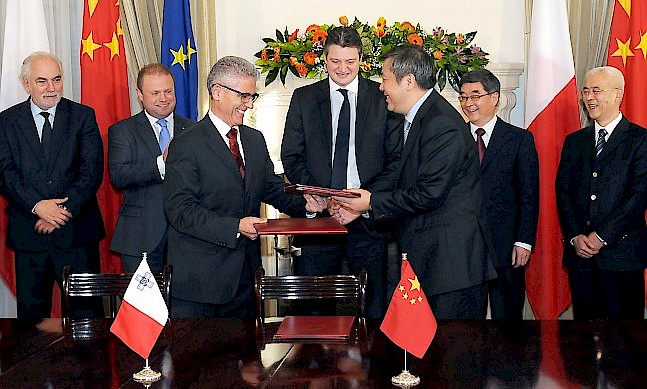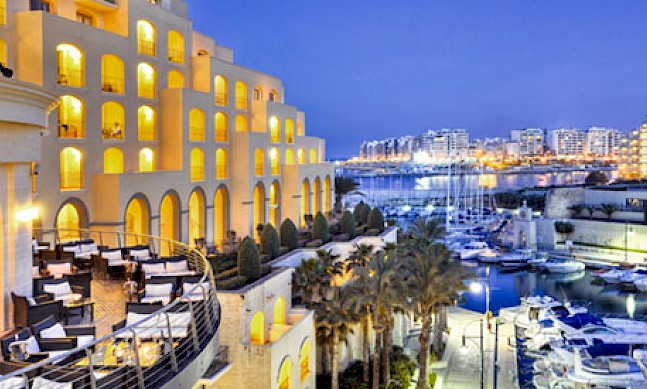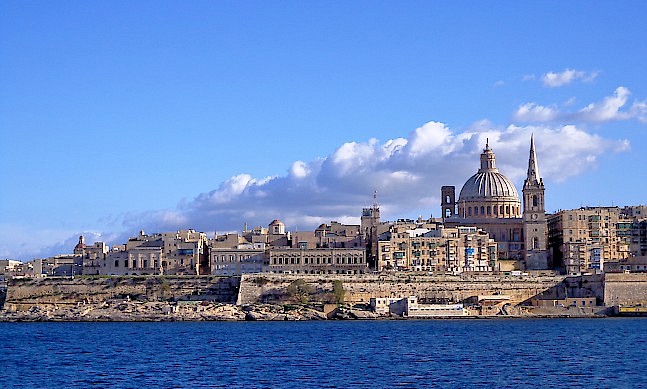Fenech Farrugia Fiott Legal came about from the merger of the complementary professional expertise of Dr Tonio Fenech, Dr Christian Farrugia and Dr Antoine Fiott, who between them have amassed enviable legal expertise in sectors ranging from banking to aviation, gaming and shipping. Joint managing partner Dr Fenech sat down with The Report Company to discuss the firm’s objectives, and his assessment of the Maltese business and investment environment.
The Report Company: What was the thinking behind bringing together the combined expertise of Fenech, Farrugia and Fiott in this firm?
Tonio Fenech: The whole idea of us coming together was a conviction that Malta would benefit from a different view as to how professional services can be developed. We did not want to create yet another law firm. There are several, very good law firms in Malta and we hope we are one of them, but we wanted to develop what we called “legal services in context”, which basically does not look at the law merely as a stand-alone static arbiter of rights and wrongs, but sees it as the dynamic architecture of relationships, fully integrated within its commercial and social context.
Our aspiration is that our professional discipline contributes to more dynamic and long-lasting relationships among our clients, which is the very stuff of commercial and social development in the so-called new economy. Many lawyers already do this on an individual level, but we wanted this approach to be the hallmark of our firm. We also aim to take more of an integrated view of things. The way we do that is by having a collaborative structure whereby different disciplines and sectors of expertise have a clear working system for collaboration, with a view towards providing a more integrated solution to our clients. This is how we started off from the very beginning.
We have been together since 2009, although our individual careers are much longer than that. Our first act was to develop a vision statement which articulated how professional services can be developed in the future with collaboration rather than a central command control structure at its core. What is different as far as our conception of professional services is concerned is the way we are organised to make sure that the best expertise is harnessed for the purpose of solutions in a manner which is collaborative, but at the same time structured along time-tested lines.
In the law firm, there are various centres of expertise; we are specialised in a number of areas but we have it very clear as part of our raison d’être the seeking out of integrated solutions by collaborating with other disciplines. This has been particularly evident in a number of specialised units that we have developed over a number of years.
TRC: How important is innovation to the firm?
TF: Our approach has been to think outside the box in terms of advising our clients, wherever it is important to re-visit traditional patterns of dealing. The accent is on relationship design, which is forward-looking and pragmatic. The input we get from different disciplines helps ensure that, as lawyers, we are in a better position to foresee different situations, when designing structures, relationships and other legal frameworks for the development of business.
There are a number of values that are at the basis of our approach. The first is that we aspire to be fiduciaries of the client, as opposed to simply advisors, becoming virtual members of the management team of the client concerned, helping the client with the actual implementation of whatever is required.
“Our approach has been to think outside the box in terms of advising our clients, wherever it is important to re-visit traditional patterns of dealing.”Post This
We take a deliberate open-architecture approach. We recognize that any single professional services entity cannot be the repository of expertise in all areas, and we therefore see other firms not merely as competitors but also as potential collaborators, wherever required, because we always need more people in order to handle some projects and processes. No one firm will be able to have all the infrastructure in-house, so we openly look for collaboration with others in terms of expertise in helping our clients to move to their solutions.
Another fundamental aspect is our view of technology. We view technology as part of the identity of a professional services provider, and not merely as a tool. It has to be very much intrinsic to our methodology in terms of how we go about our profession. Technology-driven economic development is one of our targeted areas for multi-disciplinary expertise, where our specialist lawyers work hand-in-hand with specialists from other professional disciplines in a systemic manner.
TRC: Which sectors are key to your practice?
TF: We are a full-service law firm but we are very clear that there are certain areas in which we feel we are best in class. I have already mentioned legal issues connected with technological development, but other principal areas of activity are the general field of corporate commercial law in general, and mergers and acquisitions in particular. We are specialists in corporate structure design and administration, as well as in fiduciary structures, such as trusts, foundations and cooperatives. We are also very active in the field of financial services in general and asset finance in particular. This is an aspect of Maltese law that is quite unique given the hybrid nature of our law, where there are aspects of continental European civil law and also aspects of Anglo-Saxon law, which allows for the registration of international security interests against assets in a particularly effective manner.
We have a specialized multi-disciplinary unit dedicated to the investment funds industry, and are also traditionally very strong in the field of maritime law and aviation law, together with the general field of energy law and real estate development.
Another area where we have been particularly active is in the e-gaming sector. We are fast developing the private clients area of practice, specialising in estate planning, residence, immigration, and relocation, as well as inter-generational planning. We have a very strong tax department, which allows us to assist clients not only with their structuring but also with how better to plan cost and income flows from a tax perspective in a globalised economy.
TRC: How do you attract clients from abroad?
TF: Professional services providers in a small country like Malta tend to follow where economic development of the country as a jurisdiction flows. It’s also very much tied in with how Malta as a country is getting better known in the global context. In our case, Malta is developing as an international services centre, and the manner in which it projects itself has been complementary to our own development. As a small country within the European Union, we are firm in our belief that small is beautiful. Malta is a jurisdiction with a fully-fledged regulatory infrastructure which functions very well, but because of our size it is easier to have access to policy makers and decision takers within the government and the regulatory infrastructure.
“Malta’s regional significance is far greater than its size and hence we can play an important part in facilitating investment within the Mediterranean region as a whole both going into Europe and into the Middle East and Africa.”Post This
TRC: Where do you see room for improvement to make Malta a more competitive jurisdiction for international investment?
TF: There’s always room for improvement. I think the record of Malta as a jurisdiction for investment has always been very good and this stems from the fact that we never had any natural resources beyond the human resource and therefore our propensity towards the services industry has always been good. The record in terms of the e-government services has been extremely good over the last two years. That needs to constantly be revamped and rekindled in terms of the energy and impetus which it is given.
TRC: You are also chairman of the Alliance Trust Group. Where is this company’s focus, and the focus of other companies under it?
TF: It provides trust, fiduciary and corporate services. Corporate and project finance services are provided through RG Capital Advisors Ltd, while EU related expertise is handled under the Ascend Consulting brand by our in-house team of specialists who focus largely on EU funding mechanisms and programs.
Our different centres of expertise have all co-sourced common management support and office infrastructure from TAP-K Resources Ltd, which is another member of the AT Group. This represents our common infrastructure, providing us with our managed physical office environment as well as management infrastructure.
Outsourcing, or as in our case, co-sourcing, is increasingly becoming an important element for competitiveness in the new economy, where value-add considerations are as important as cost-saving ones. TAP-K Resources is increasingly becoming a profit centre in its own right, despite the fact that it was only established a few months ago, as several of our clients establishing corporations in Malta for their international business have understood the advantages of co-sourced management and infrastructure.
The AT Group has also invested in a growing pension funds administration services provider, Momentum Pensions Malta Ltd, which is fast becoming an international operator, opening offices also in the Isle of Man and Gibraltar.
Beyond that, we have been the catalyst for the development of a wider network of independent professional services providers, known as the TAP Knowledge Network. This network of independent professional service providers have adopted a common working system as to how they approach issues from a multi-disciplinary angle, through which they can call upon each other to come up with single integrated solutions for their clients.
“Malta is developing as an international services centre, and the manner in which it projects itself has been complementary to our own development.”Post This
TRC: In your opinion, what will be the impact of the Individual Investor Programme in Malta?
TF: These sort of investment-driven programmes are not new. The Malta programme was conceived in successive iterations, and therefore the final product has had the benefit of absorbing and adapting suggestions and criticism that the developing system would have received, when originally announced. Thus the final product, which has only recently been rolled out, has varied input, and the resilience required to flourish in the right direction.
When industrialisation was still the key driver behind economic development, labour tended to follow and congregate in the great seats of capital. However, nowadays, where knowledge and creativity have become more central, the pattern seems to have altered. It is now capital that is seeking out and, in many cases, following talent. Therefore it is very important for economic planners to devise programmes and policies that attract the right talent to our island, and the Individual Investor Programme can be seen as another tool through which the right people can be attracted to our shores.
TRC: How would you appraise Malta’s relationship with China?
TF: The attempt by tiny Malta to go beyond its immediate neighbourhood and establish relationships very far afield from its normal habitat has a long history. Since the very early 1970s there have been very deliberate attempts at trying to forge new and closer relationships with China. This continues today. It is certainly in the interests of Malta to have very good relationships with all of the stakeholders in the global community and China is certainly a very important stakeholder.
As far as our firm is concerned, we have been active in terms of advising clients who have either an interest in moving into China or coming from China to move into this region. This is something we hope to continue developing as we go along. Malta’s regional significance is far greater than its size and hence we can play an important part in facilitating investment within the Mediterranean region as a whole both going into Europe and into the Middle East and Africa.
TRC: What is your outlook for the future of the firm?
TF: We see that our vocation is more and more to be an active operator in the knowledge economy. Our aspiration is to develop as catalysts of creativity, engendering client competitiveness and profitability. Beyond all-important savings on costs, we wish to assist clients to become active operators in the new economy, a context which is not bound by territory, and where competitiveness is increasingly determined by a creative revisiting of age-old patterns, and where relationship design becomes key. Creative multi-disciplinary design, therefore, which is tailor-made for the characteristics of a particular business, must become more intrinsic to the professional services provider’s methodology, irrespective of the provider’s discipline of origin.
The legal profession has a constructive role to play in such a process, particularly when it recognises that it also has a vocation to help economic development through relationship design and facilitation. This is true for lawyers as it is true for all other professions, and contributing to this movement is our ultimate aspiration.
